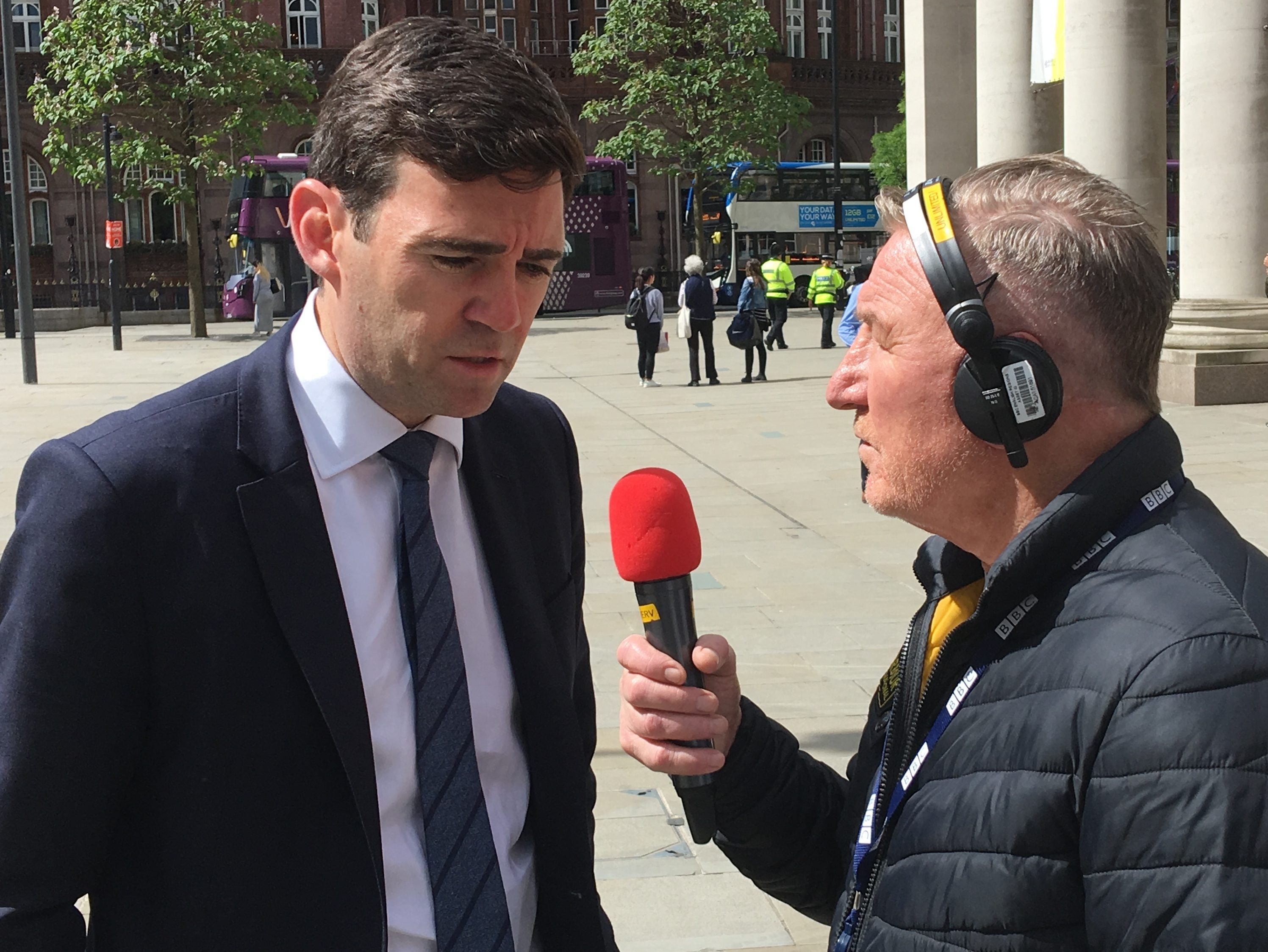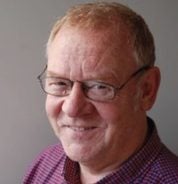
News of the Manchester bombing broke a little way into the start of BBC Radio Manchester’s late night phone-in segment, with callers bringing the news to the station live on the air.
Manning the phones was Allan Beswick, whose evening slot typically begins at 10am and runs until 1am before BBC Radio Five Live takes over the channel through until the morning breakfast show.
On Monday, he stayed on at the studio until 5am to take calls from the public and fellow local BBC journalists about the explosion that killed 22 people and injured dozens, including children.
“Suddenly it isn’t someone who wants to tell a joke or sing a song or something. Suddenly it’s this story and two things are happening,” Beswick told Press Gazette.
“Firstly it’s a phone-in show, so that has to continue, but then this news story starts so journalism starts to happen. My producer is a highly qualified producer of news so he has got his news head going on and journalists come wading in because they have heard about it.
“Within an hour I was talking to one of our journalists called Pav who was in the city centre saying: ‘I’m right by it, this is what’s happening.’
“Then these people come in, gear up and get out to the story and they are also reporting in. The audience wants the story.
“You have got the emotive stuff from people involved that is absolutely charged, but you also want a description – how many fire engines there are – because the public want to know what’s going on.”
Among the 74 callers that night was a woman who described what she had seen in the foyer of the Manchester Arena, where the explosion hit at about 10.30pm as young children and teenagers left a pop concert to meet waiting parents, friends and relatives.

Allan Beswick
Beswick said: “To be the person she decides to tell that to is an extraordinary privilege. Someone has that going on in their head and what do they do? They ring BBC local radio. I mean it’s extraordinary.”
He said he sees his role at the local radio station as that of a “conduit” through which people can tell their stories.
“You are just this machine in the middle – you aren’t a person at all,” he said. “You are just a broadcast machine taking information from people and spitting it out. The conduit for people with all this emotion who need to talk to somebody and you are just letting them really.”
He added: “It’s just a case of saying we are here. We are a radio station. It won’t be confidential and we aren’t the Samaritans, but we are here.
“I think there’s something special about local radio. When the stuff hits the fan you turn to the people you know. The people that you are part of and are part of you. You turn to your community and BBC local radio is a part of that community and it’s a bigger part in extremis.
“People to come on the radio with their raw emotions it enables them, in a kind of way, to dissipate some of the sharp edges of that for a while.”
Normally the station gets 25-30 callers within its three-hour slot, but this past week has seen the show extended twice – on the day of the attack and the following night.
On Tuesday, Beswick’s producer called him in two hours early, for an 8pm start, but with a special task.
“The boss said there’s been so much going on for the past 12 hours, what we want you to do is go on and not talk to anyone for an hour, just play a few easy tunes and just allow greater Manchester to breathe out.”
Covering the atrocity on the morning after the attack was BBC Radio Manchester’s Mike Sweeney (pictured top talking to Manchester Mayor Andy Burnham).
He began his broadcast live in the city centre with a personal story: His daughter’s best friend had been at the Ariana Grande concert where the bomber struck and only by chance had avoided disaster.
For Sweeney, it’s an example of the power of local radio, which he described as being “part of the community’s DNA”.
“There are people who don’t listen to us regularly, but when this [bombing] happened people said they turned to BBC Radio Manchester straight away because they knew we would keep them informed, we would empathise with them and would deal with everything in a way they would approve of,” he said.
And that is down to the radio station being “full of real people”, said Sweeney.
“It sounds like the radio station that broadcasts to the North of England, to an audience who, if they aren’t now, their mums and dads were working class.
“It broadcasts to a very down to earth, realistic and warm North West. And all the presenters, the news people and journalists all sound like that. They sound real. You can imagine them going to the Co-op or emptying the bins in the morning. It seems real.
“We broadcast with our audience, we don’t broadcast to them.”
Sweeney said that despite the tragedy, his colleagues had been “determined to do their usual professional jobs”, but said the incident was “raw and personal for every single member of staff”.
“When callers are in tears on the phone you have to be as strong as you can for them,” he added.
In keeping with the city’s united front in the wake of the tragedy, Sweeney told Press Gazette: “We don’t need extremism, we don’t need hate. We will deal with this. We will be strong. We will be tenacious. But we will still be Manchester at the end of it.”
Journalists have faced cricitism for approaching families of victims this week. ‘Death knocks’ as they are known in the trade are a staple of journalism, but one that is difficult for all concerned.
Asked what he thought of the behaviour of his peers, Beswick, who has worked in radio for more than three decades, said: “Whenever anyone asks me that I always name drop.
“I started in radio a long time ago. One of the first people I interviewed was [journalist] Alan Whicker. In a book he had out he talked about when he was filming in India, coming out of his hotel and stepping over the dead bodies of people who had starved that night.
“I said to him: ‘How do you justify it?’ He said: ‘They weren’t dead because of me. You know they were dead because of me. What did you do about it?’
“And that’s journalism. We tell people what’s going on. If we don’t tell people it will never change, but it isn’t the journalist’s job to change it.”
Email pged@pressgazette.co.uk to point out mistakes, provide story tips or send in a letter for publication on our "Letters Page" blog
